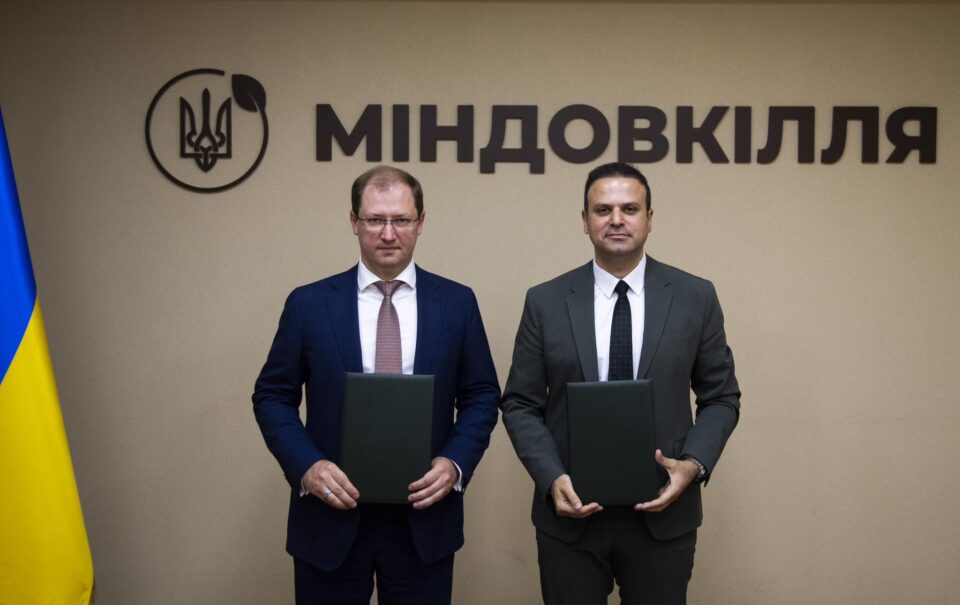Ahead of the upcoming United Nations Climate Change Conference (COP 29), the United Nations Children’s Fund (UNICEF) and Ukraine’s Ministry of Environment Protection and Natural Resources have come together to ensure a sustainable post-war recovery by protecting children’s environmental rights and fostering meaningful climate-related dialogue with young people.
The partnership aligns with Ukraine’s commitments under an Intergovernmental Declaration on Children, Youth and Climate Action signed by Ukraine in 2023, as well as with the Paris Agreement and its primary instrument, nationally determined contributions (NDC), aimed at reducing national emissions and adapting to the impacts of climate change.
“The ongoing war and its impact on Ukraine’s environment are deepening children’s vulnerability to climate change,” said Munir Mammadzade, UNICEF Representative to Ukraine.
“Solutions to these complex challenges could and should be found through meaningful dialogue with children and young people, offering them green skills and engaging them in climate action. We regard this cooperation as an important way forward for sustainable recovery efforts based on the best interests of the youngest generation of Ukrainians. In the face of ever-growing environmental risks and shocks and challenges for preserving a safe and sustainable environment for children across the country, we must act together without delay.”
Ruslan Strilets, the Minister of Environment Protection and Natural Resources said, “Water is the basis of all living things. Today, it is one of the primary needs in frontline territories and one of the key topics in discussions with international partners. We plan to cooperate with UNICEF to implement programmes aimed at ensuring access to quality drinking water in the nine most vulnerable regions of Ukraine that are closest to the conflict line as well as to develop Ukraine’s climate policy, improve the mental health of children through the visits to national parks, and engage them in climate activities.”
“The consequences of Russia’s invasion prove that the impact of hostilities on the environment requires a global response and long-term solutions. Therefore, the more ecologically savvy Ukraine’s youth are, the more developed Ukrainian society will be. I believe that, together with UNICEF, we will be able to mobilize our best practices to agilely respond to the current challenges.”
The key areas of cooperation between UNICEF and the ministry will be focused on:
- Engaging children and youth through the establishment of youth councils that promote climate-smart, environmentally-friendly and sustainable use of natural resources;
- Developing advocacy, communication and educational campaigns for youth focused on climate action, environmental sustainability, water conservation, domestic waste management, and other relevant topics;
- Mobilization of resources for an all-inclusive, child-centered recovery, and other action points.
To ensure that Ukraine’s recovery is truly green and resilient, UNICEF is supporting the modernisation of social infrastructure and helping to make water utilities energy-efficient and sustainable. Furthermore, as part of its life-saving emergency response to war-affected communities, particularly during cold periods, UNICEF’s Water, Sanitation and Hygiene (WASH) programme directly supports municipalities and district heating utilities to help them prepare for the winter. UNICEF also supports regional water utilities to ensure that vulnerable populations have access to safe water, reliable sanitation and hygiene.
UNICEF is also helping equip young people with the necessary knowledge and skills to shape a safe and sustainable future, particularly through its UPSHIFT youth innovation programme.
Background
In 2023, Ukraine signed an Intergovernmental Declaration on Children, Youth and Climate Action. This declaration is a first of its kind commitment to accelerate inclusive, child and youth-centered climate policies and action at national and global levels. As one of the custodians of the declaration, UNICEF works with governments to support its implementation.

